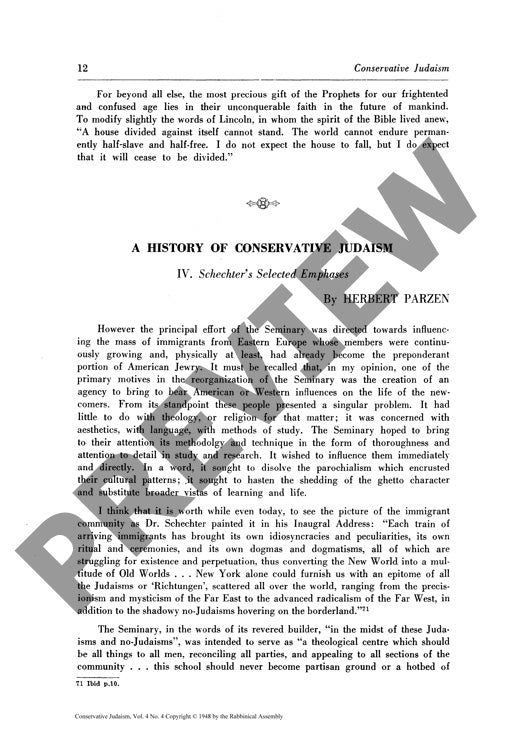The History of Conservative Judaism Part
Couldn't load pickup availability
This historical analysis examines Solomon Schechter's foundational role in shaping Conservative Judaism through his leadership of the Jewish Theological Seminary in early 20th-century America. The study employs historical methodology to analyze Schechter's inaugural addresses, Seminary policies, and ideological positions regarding Eastern European Jewish immigrants. Key findings reveal that Schechter's primary objective was achieving synagogue unity through cultural adaptation while maintaining religious continuity. His approach involved rejecting Yiddish in favor of English and Hebrew, promoting scientific methodology in religious studies, and creating an inclusive theological center that could "be all things to all men." The research demonstrates how Schechter applied historical precedents, particularly the successful integration of diverse Jewish communities in 15th-century Turkey, to address American Jewish fragmentation. The analysis reveals that Schechter's concept of "Catholic Israel" presupposed synagogue unity and influenced both Reform and Orthodox movements toward historical Judaism. However, the study identifies inherent weaknesses in this inclusive approach, noting that religious movements require specific rather than general principles for effective mobilization. The findings conclude that while Schechter's policies of religious and intellectual laissez-faire created lasting challenges for Conservative Judaism's development, his selective emphasis on endangered Jewish elements successfully countered Reform influences and modernized Orthodox practices, fundamentally transforming American Jewish religious life.

More Information
-
Physical Description
-
Publication Information
Published 1948
ISBN
-
Publication Credits
Herbert Parzen

